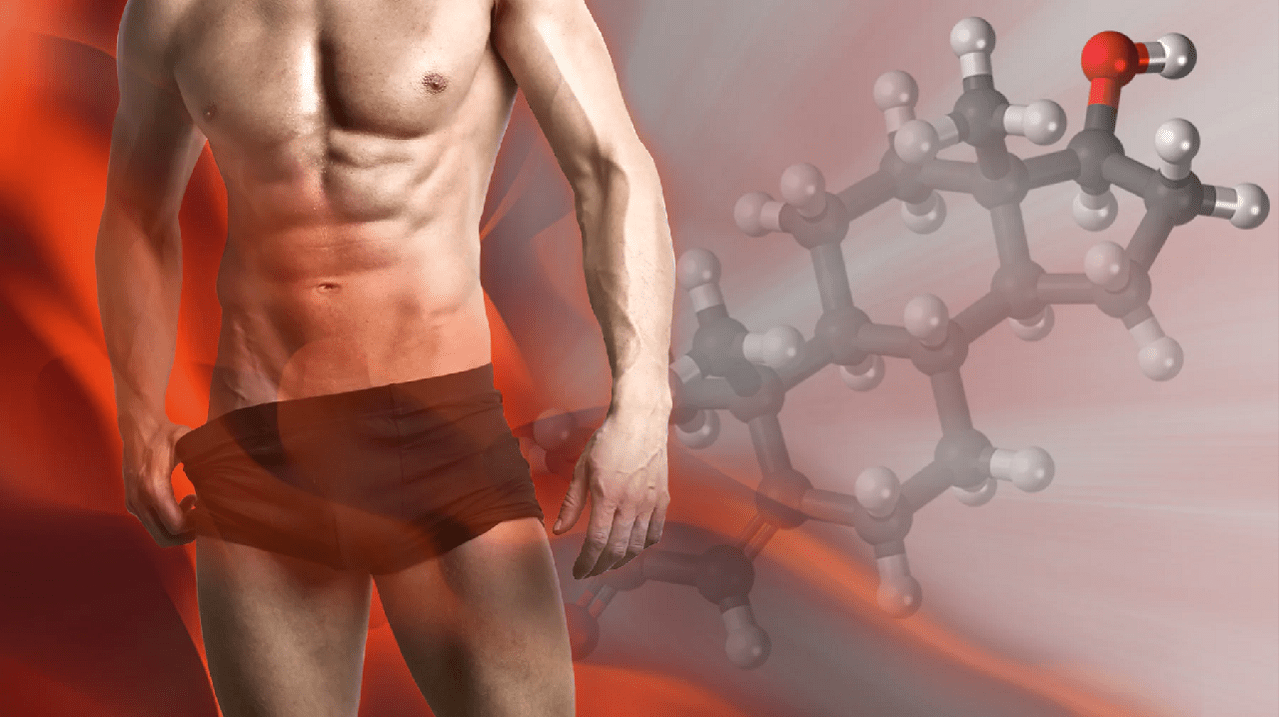Does Testosterone Make You Harder
Contents
- 1 Does Testosterone Make You Harder
- 2 Testosterone: An In-Depth Hormonal Overview
- 3 Libido and Testosterone: Decoding the Link
- 4 The Nitric Oxide Connection: Testosterone’s Role in Erectile Function
- 5 Does Testosterone Make You Harder? Navigating a Complex Landscape
- 6 Testosterone and Erectile Dysfunction: Navigating a Complex Landscape
- 7 Lifestyle Factors and Hormonal Health: Adopting a Holistic Approach
- 8 FAQs on Testosterone and Sexual Health
- 9 Conclusion
Testosterone often hailed as the quintessential “male hormone,” plays a pivotal role in various aspects of men’s health, with profound implications for sexual function. Beyond its widely acknowledged impact on libido, the question of “Does testosterone make you harder” has become a focal point of curiosity. This inquiry delves beyond the stereotypical association with sexual prowess and seeks to uncover the intricate connections between testosterone and the physical aspects of sexual function. This expansive exploration aims to dissect the multifaceted nature of testosterone’s influence on sexual health, dispel prevalent myths, and provide a comprehensive understanding of its nuanced role.
Must Check: Signs of Low Testosterone in Men Under 40
Testosterone: An In-Depth Hormonal Overview
Testosterone, a steroid hormone classified as an androgen, is predominantly synthesized in the testicles in men and, to a lesser extent, in the ovaries in women. Beyond its pivotal role in sexual development, testosterone orchestrates a symphony of physiological processes, including the regulation of muscle mass, bone density, and energy levels. This section seeks to establish a robust foundational understanding of testosterone, encompassing its production, regulation, and systemic impact, thereby setting the stage for a profound exploration of its intricate connections to sexual health.
Libido and Testosterone: Decoding the Link

Libido Unveiled:
Libido, often synonymous with sexual desire, stands as a cornerstone in the sexual response cycle. Testosterone emerges as a key player in initiating sexual thoughts, fantasies, and desires. This section embarks on a detailed journey through the intricate mechanisms that underscore how testosterone interacts with the brain’s limbic system, influencing neurotransmitters and receptors to shape a healthy sexual response.
Testosterone Levels and Libido:
Addressing the common misconceptions surrounding testosterone levels and libido is crucial. While elevated testosterone levels can positively impact libido, it’s essential to recognize that a myriad of factors, including psychological and emotional elements, contribute to an individual’s sexual desire. This subsection aims to unravel the delicate balance and intricate interplay of psychological, hormonal, and environmental factors that collectively influence libido.
The Nitric Oxide Connection: Testosterone’s Role in Erectile Function
Unraveling Erections:
Achieving and maintaining an erection involves a complex interplay of hormonal, neurological, and vascular factors. This section delves into the intricacies of the physiological processes that culminate in erections, exploring the roles of testosterone, nitric oxide, and cyclic guanosine monophosphate (cGMP) in the intricate dance that facilitates penile tumescence.
Nitric Oxide Synthase: The Indirect Influence of Testosterone
A comprehensive examination of how testosterone contributes to erectile function by promoting the production of nitric oxide synthase, a pivotal enzyme in the synthesis of nitric oxide. This exploration will illuminate the science behind nitric oxide, detailing its role in relaxing penile smooth muscles, facilitating blood flow, and contributing to the physiological mechanisms of achieving and sustaining an erection.
The Relationship Between Testosterone and Erections
Addressing the central question—does testosterone make you harder—requires a nuanced exploration of its impact on physical aspects of sexual function. Testosterone does play a role in supporting the mechanisms leading to erections, including promoting the production of nitric oxide. However, it is crucial to understand that testosterone alone does not singularly determine the hardness of erections.
Factors Influencing Erection Hardness
While testosterone contributes to erectile function, other factors such as psychological well-being, vascular health, and overall lifestyle choices also play integral roles in determining erection hardness. Stress, anxiety, and other psychological factors can impact sexual health, underscoring the importance of a holistic approach to understanding and addressing erectile function.

Erectile Dysfunction Explored
Erectile dysfunction (ED), a prevalent condition, can stem from various causes, including psychological factors, vascular issues, and hormonal imbalances. This section aims to provide an exhaustive overview of the multifactorial nature of ED, delving into the psychological, neurovascular, and endocrine factors that contribute to erectile health. Special attention will be given to how testosterone levels are implicated in ED, both as a potential cause and a therapeutic avenue.
The Hormonal Balance: Beyond Testosterone
Recognizing that sexual health is intricately influenced by a delicate balance of hormones, this subsection extends beyond testosterone to explore the roles of other hormones such as estrogen, cortisol, thyroid hormones, and prolactin in maintaining overall well-being and sexual function. A holistic approach will be emphasized, emphasizing the interconnectedness of the endocrine system in sustaining sexual health.
Lifestyle Factors and Hormonal Health: Adopting a Holistic Approach
The Psychological Impact: Stress, Anxiety, and Sexual Health
Stress and anxiety can profoundly impact sexual health, influencing hormonal balance and contributing to conditions such as erectile dysfunction. This section investigates the intricate relationship between psychological well-being and hormonal balance, providing insights into managing stressors through mindfulness, cognitive-behavioral strategies, and other therapeutic interventions for optimal sexual health.
Lifestyle Choices and Sexual Well-being
An extensive exploration of the influence of lifestyle choices—comprising regular exercise, a balanced diet, sufficient sleep, and moderation in alcohol and substance use—on hormonal health and overall sexual well-being. Practical tips will be provided for individuals seeking to enhance their sexual health through proactive lifestyle modifications, emphasizing the importance of a holistic approach.
FAQs on Testosterone and Sexual Health
- Can Low Testosterone Cause Erectile Dysfunction?
Yes, low testosterone levels can contribute to erectile dysfunction. Testosterone plays a multifaceted role in supporting the mechanisms that lead to erections, including the production of nitric oxide, which helps relax penile muscles and allows blood flow into the penis. Low testosterone can impact libido, potentially leading to difficulties in achieving or maintaining an erection.
- Is Testosterone Replacement Therapy a Cure for Erectile Dysfunction?
Testosterone replacement therapy (TRT) can be effective in addressing erectile dysfunction caused by low testosterone levels. However, it’s essential to consult with a healthcare professional to determine the underlying cause of erectile dysfunction before considering TRT. TRT is not a one-size-fits-all solution and should be approached with caution, considering individual health factors.
- What Role Does Testosterone Play in Female Sexual Health?
While testosterone is often associated with male health, it also plays a role in female sexual health. Women produce testosterone in smaller amounts than men, influencing libido, sexual arousal, and overall sexual satisfaction. Imbalances in testosterone levels in women can contribute to sexual health issues, and healthcare professionals may consider hormonal interventions in specific cases.
- How Can Lifestyle Changes Improve Testosterone Levels?
Several lifestyle factors can positively impact testosterone levels. Regular exercise, particularly resistance training, a balanced diet rich in essential nutrients (including zinc and vitamin D), adequate sleep, and stress management contribute to maintaining optimal hormonal health. Adopting a healthy lifestyle can positively influence testosterone production.
- Can Psychological Factors Affect Testosterone Production?
Yes, psychological factors can influence testosterone production. Chronic stress and elevated cortisol levels, often associated with anxiety and depression, can suppress testosterone production. Adopting stress management techniques, seeking psychological support, and maintaining a positive mental state can contribute to a healthier hormonal balance.
- What Are the Risks and Benefits of Testosterone Replacement Therapy?
Testosterone replacement therapy (TRT) can offer benefits such as improved libido, energy levels, and mood in individuals with clinically low testosterone levels. However, it is not without risks. Potential side effects include fluid retention, acne, mood swings, and long-term effects on cardiovascular health. Before considering TRT, individuals should undergo thorough assessments and consult with healthcare professionals to weigh the potential risks and benefits based on their specific health conditions.
Conclusion
In conclusion, the intricate relationship between testosterone and sexual health extends far beyond simplistic cause-and-effect dynamics. While testosterone undoubtedly plays a crucial role in libido and supports certain physiological aspects of sexual function, a comprehensive understanding of sexual health necessitates the consideration of various factors. By debunking myths, exploring the intricate science behind testosterone’s influence, and adopting a holistic approach to sexual well-being, individuals can navigate the complex landscape of hormonal health for a fulfilling and satisfying intimate life. Consultation with healthcare professionals is essential for personalized guidance based on individual health circumstances, ensuring a comprehensive and individualized approach to sexual wellness.


